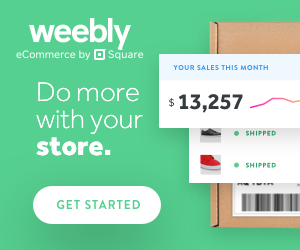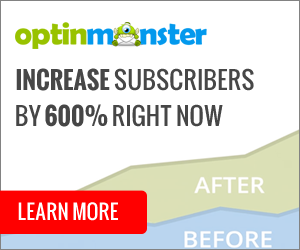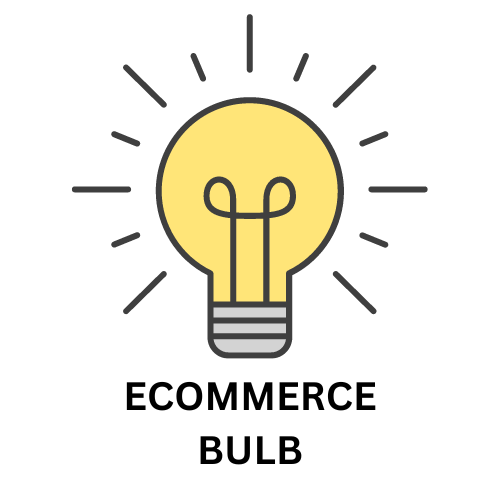Cutting cost is a very crucial these days especially for SME, Optimizely Alternatives for Small Businesses might be a good option, Optimizely is known for its high cost, so we need to find a way to get similar level of service that cost less.
Optimizely Alternatives for Small Businesses:
Optimizely Alternatives for Small Businesses
While Optimizely is a powerful A/B testing and personalization platform, there are other alternatives that may be more suitable for smaller businesses. Here are a few options:
Free and Open-Source Tools:
- Google Optimize: Google’s free A/B testing tool, integrated with Google Analytics.
- VWO: A popular A/B testing platform with a free plan.
- AB Tasty: Offers a free plan with limited features.
- Convert Experiments: An open-source A/B testing tool.
Paid Alternatives:
- Sitecore Experience Platform: A comprehensive digital experience platform with A/B testing and personalization features.
- Adobe Target: Adobe’s A/B testing and personalization platform.
- Crazy Egg: Primarily known for heatmaps but also offers A/B testing features.
When choosing an alternative, consider factors like:
- Features: Does the platform offer the features you need (e.g., multivariate testing, personalization)?
- Pricing: What is the cost, and are there free or low-cost plans available?
- Ease of use: How easy is the platform to use for non-technical users?
- Integration: Can the platform integrate with your existing tools and systems?
It’s recommended to try out different platforms and compare their features to find the best fit for your small business.

What do People use Optimizely for?

Optimizely is a digital experience platform (DXP) primarily used for optimizing websites, mobile apps, and digital experiences. It helps businesses improve customer engagement, conversion rates, and overall user experiences through testing, personalization, and experimentation. People use Optimizely for a variety of purposes:
1. A/B Testing
- Optimizely enables businesses to test multiple versions of a webpage, app, or user experience to determine which one performs better. Marketers and developers use this feature to identify changes that improve metrics like conversion rates, click-through rates, or user engagement.
2. Multivariate Testing
- Beyond A/B testing, Optimizely supports multivariate testing, where multiple elements on a page (e.g., headlines, images, buttons) are tested simultaneously to find the best combination that maximizes desired outcomes.
3. Personalization
- Businesses use Optimizely to create personalized experiences for different customer segments. By delivering content, offers, and recommendations tailored to individual preferences and behaviors, companies can increase engagement and conversion rates.
4. Feature Flagging and Experimentation
- Optimizely’s feature flagging allows developers to roll out new features incrementally and test them with specific user groups before making them widely available. This helps reduce risk and ensure that new features positively impact user experience.
5. Customer Journey Optimization
- Optimizely is used to optimize the entire customer journey by tracking how users interact with a website or app across different touchpoints. Marketers can experiment with content and design at various stages of the funnel to improve engagement and conversion at each step.
6. E-Commerce Conversion Rate Optimization (CRO)
- E-commerce businesses use Optimizely to test changes in product pages, checkout processes, and overall site structure to increase conversion rates. Optimizing elements like product images, CTAs, and page layouts can lead to higher sales.
7. Content Optimization
- Optimizely allows content teams to experiment with headlines, images, copy, and layouts to find the most engaging combinations. This helps media, blog, and content-heavy websites improve reader engagement, time on site, and conversion to subscribers or customers.
8. User Experience Testing
- UX designers use Optimizely to test different UI designs, layouts, and interactive elements to see how users respond. The platform’s real-time data helps inform decisions about improving user navigation, page speed, and overall usability.
9. Mobile App Testing
- Businesses with mobile apps use Optimizely to test and optimize app experiences, from interface design to in-app messaging, to improve user retention and engagement.
10. Cross-Channel Consistency
- Optimizely helps ensure that marketing and messaging efforts are consistent across different digital channels, including websites, apps, and email campaigns. By testing and personalizing across these channels, companies can create a seamless experience for their customers.
11. SaaS and B2B Optimization
- Many SaaS and B2B companies use Optimizely to experiment with their marketing and sales funnels. Testing landing pages, lead forms, and other interactions can improve lead generation and customer acquisition processes.
Optimizely is popular among digital marketers, developers, and UX designers looking to make data-driven decisions and improve the effectiveness of their digital strategies.

Who Competes with Optimizely?

Optimizely, a leader in experimentation and optimization platforms, faces competition from several companies offering similar services in A/B testing, personalization, and digital experience optimization. Some of its major competitors include:
1. Adobe Target
- Adobe Target, part of Adobe Experience Cloud, offers personalization, A/B testing, and optimization tools for websites and apps. It integrates well with other Adobe products, making it popular among enterprises with large-scale digital marketing efforts.
2. VWO (Visual Website Optimizer)
- VWO provides A/B testing, multivariate testing, and heatmaps for optimizing user experiences. It’s known for its ease of use and offers various features for smaller businesses looking for budget-friendly options.
3. Google Optimize
- Google Optimize (now Google Optimize 360 for premium users) provides free A/B testing and personalization tools, especially for websites using Google Analytics. While not as feature-rich as Optimizely, it’s a cost-effective solution for many businesses.
4. Unbounce
- Primarily known for its landing page creation tools, Unbounce also provides A/B testing and conversion rate optimization, making it a direct competitor to Optimizely for businesses focusing on landing page experimentation.
5. Dynamic Yield
- Dynamic Yield offers personalization, recommendations, and A/B testing for digital customer experiences. It’s focused on providing real-time personalization at scale for large businesses.
6. Kameleoon
- Kameleoon is a fast-growing competitor offering similar A/B testing, multivariate testing, and personalization features. It’s widely used in Europe and is known for its AI-powered personalization capabilities.
7. Convert.com
- Convert is a competitor that focuses on A/B testing, multivariate testing, and personalization. It’s favored by smaller to mid-sized companies because of its competitive pricing and flexibility.
8. SiteSpect
- SiteSpect offers an A/B testing and personalization platform with a server-side approach, making it ideal for businesses that require more control and flexibility over their testing environments.
9. AB Tasty
- AB Tasty provides A/B testing, multivariate testing, and personalized experiences for websites and apps. It’s a popular choice for marketers looking for an intuitive platform with a broad range of testing capabilities.
Each competitor has unique strengths and weaknesses, with some platforms offering more advanced integrations or specific features that appeal to different business needs.

What is Optimizely Explained

Optimizely is a powerful A/B testing and personalization platform that helps businesses improve their websites and apps by testing different variations of elements and measuring their impact on user behavior and conversions.
Here’s a breakdown of what Optimizely does:
- A/B testing: Allows you to compare two or more versions of a page or element to see which one performs better.
- Personalization: Delivers personalized experiences to different user segments based on their behavior, preferences, or demographics.
- Multivariate testing: Tests multiple elements at once to find the optimal combination.
- Content optimization: Helps you optimize your website’s content for better user engagement and conversions.
- Data analysis: Provides detailed analytics and reporting to help you make data-driven decisions.
Optimizely is a valuable tool for businesses of all sizes that want to continuously improve their websites and apps and achieve their marketing goals.

How Expensive is Optimizely?

Optimizely pricing is typically customized based on the specific needs and size of the business. The platform offers a flexible pricing structure, making it accessible to businesses of different sizes, but it is generally considered a premium service. Here’s an overview of how Optimizely’s pricing works:
1. Custom Pricing Based on Usage
- Optimizely Web: The pricing depends on factors like the number of monthly unique visitors (MUVs) to a website, the number of experiments run, and the level of support and features needed. For example, a business with a high volume of web traffic and multiple concurrent experiments will pay more than one with lower traffic.
- Optimizely Full Stack: This version, which supports feature flagging and experimentation across multiple platforms (web, mobile, server-side), is typically priced based on the number of users or events tracked, along with the complexity of the deployment.
2. Enterprise Plans
- For large enterprises, Optimizely typically offers custom enterprise plans that include premium features like advanced analytics, personalization at scale, and full-stack experimentation. These plans may include dedicated support, integration with other tools, and advanced data and security features, which can raise costs significantly.
- Estimates: Enterprise-level plans can range from $50,000 to over $300,000 per year, depending on the scope of services.
3. Basic Plans and Entry-Level Costs
- Smaller businesses or those just starting with experimentation may expect lower-tier plans, though Optimizely doesn’t usually advertise “entry-level” pricing on its website. In some cases, basic plans for smaller organizations or startups could start around $36,000 per year.
- Mid-Market Pricing: Companies with moderate traffic and simpler experimentation needs might pay around $50,000 to $100,000 annually.
4. Additional Costs
- Add-ons: Additional features like personalization, advanced targeting, multivariate testing, and integrations with other tools (e.g., Salesforce, Adobe) may increase the overall cost.
- Training & Support: Optimizely offers onboarding and training for an additional cost, depending on the complexity and scale of the implementation.
5. Free Tier and Trials
- Optimizely no longer offers a free version of its product, but sometimes provides free trials or proof-of-concept periods for businesses to try out the platform.
Summary
Optimizely is generally considered a high-end solution in the optimization and experimentation market, with pricing that varies based on business size, traffic, and feature requirements. Smaller businesses may find it expensive compared to other tools, while enterprises with complex needs may view it as a robust solution worth the investment.



Leave a Reply